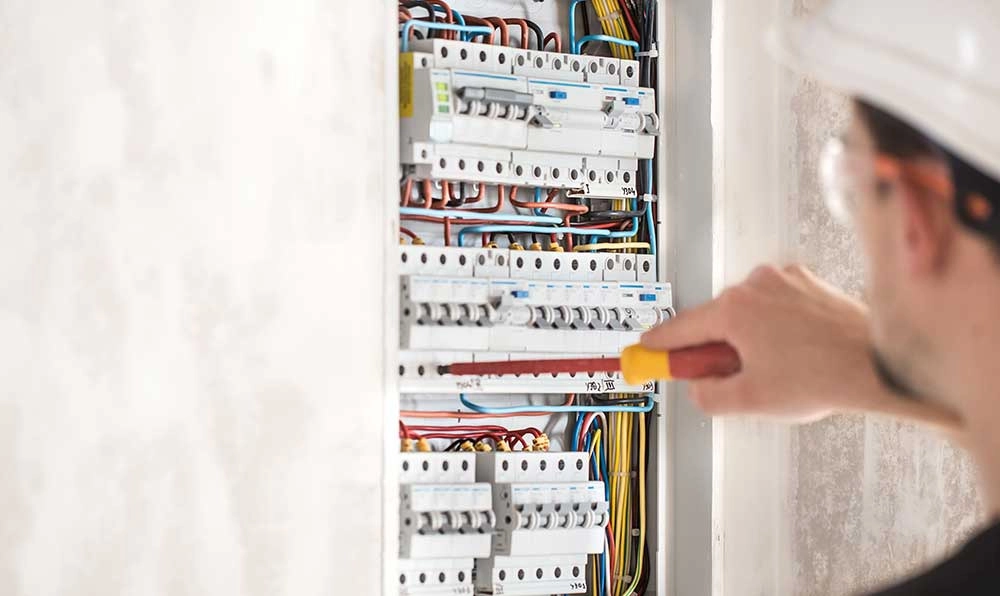In today’s fast-paced digital landscape, small businesses face increased vulnerability to security breaches. To protect sensitive information and assets, it is crucial for small businesses to adopt robust security systems that leverage advanced technologies.
This article explores the significance of security systems tailored for small businesses and how integrating technology can enhance overall security measures.
By implementing cutting-edge solutions such as surveillance cameras, access control systems, and cybersecurity measures, small businesses can ensure maximum protection and gain peace of mind in an ever-evolving digital world.
Key Takeaways
- Small businesses need to invest in robust security systems and protocols to protect valuable assets, sensitive data, and ensure the safety of employees and customers.
- Understanding and addressing common security risks, such as cyberattacks and employee negligence, is crucial for small business protection.
- Security systems for small businesses are a combination of hardware and software components, including surveillance cameras, access control systems, alarm systems, and fire detection systems.
- Integrating technology, such as high-definition cameras, motion sensors, video analytics, access control systems, and robust cybersecurity measures, enhances small business security and maximizes protection.
The Importance of Small Business Security
The importance of small business security cannot be overstated, as it is crucial for protecting valuable assets, sensitive data, and ensuring the safety of employees and customers alike.
In today’s digital age, small businesses are increasingly becoming targets for cyberattacks and other security breaches. Without adequate security measures in place, these businesses are vulnerable to financial loss, reputation damage, and even legal repercussions.
Small business owners must recognize the value of investing in robust security systems and protocols to safeguard their operations. This includes implementing firewalls, antivirus software, encryption technologies, and regular data backups.
Additionally, physical security measures such as surveillance cameras, access controls, and alarm systems play a vital role in deterring thefts and unauthorized access.
Common Security Risks for Small Businesses
Identifying and addressing common security risks is crucial for small businesses to protect their valuable assets and sensitive data. Small businesses often face unique challenges when it comes to security, and understanding these risks is the first step towards implementing effective measures.
Here are some common security risks that small businesses should be aware of:
- Cybersecurity threats: Small businesses are increasingly becoming targets for cybercriminals who exploit vulnerabilities in their systems to gain unauthorized access or steal sensitive information.
- Employee negligence: Human error, such as weak passwords, clicking on suspicious links, or falling victim to phishing scams, can compromise a small business’s security.
- Physical security breaches: Inadequate physical security measures, such as lack of surveillance cameras, secure locks, or access control systems, can make small businesses vulnerable to theft or unauthorized access.
Understanding Security Systems for Small Businesses
To gain a comprehensive understanding of security systems for small businesses, it is essential to delve into the intricacies of their functionality and benefits.
Security systems play a crucial role in safeguarding the assets, information, and overall well-being of small businesses. These systems consist of a combination of hardware and software components designed to detect, prevent, and respond to potential threats. They can include surveillance cameras, access control systems, alarm systems, and fire detection systems, among others.
By leveraging technology, small businesses can enhance their protection against various risks such as theft, vandalism, unauthorized access, and fire hazards. Security systems provide real-time monitoring, alerts, and remote access capabilities, enabling business owners to have greater control over their security measures.
Additionally, they offer peace of mind, instilling a sense of belonging and safety within the small business community.

Choosing the Right Security System for Your Small Business
When considering the protection of your small business, it is vital to carefully select the most suitable security system for your specific needs. With the advancement of technology, there are various options available in the market.
Here are three factors to consider when choosing the right security system:
- Risk assessment: Conduct a thorough evaluation of your business to identify potential vulnerabilities and areas that require enhanced security measures. This will help you determine the level of protection needed.
- Scalability: Consider the future growth of your business. Opt for a security system that can easily expand and adapt to your changing needs, ensuring long-term efficiency and effectiveness.
- Integration capabilities: Look for a security system that seamlessly integrates with your existing technology infrastructure. This will enable efficient management and monitoring, reducing the likelihood of system conflicts and enhancing overall security.
Integrating Technology for Enhanced Small Business Security
Integrating technology is crucial for enhancing small business security and maximizing protection. In today’s digital age, small businesses face numerous security threats, ranging from physical break-ins to cyber attacks. By leveraging technology, small businesses can implement comprehensive security systems that provide a robust defense against these threats.
One key aspect of integrating technology for enhanced small business security is the installation of surveillance systems. High-definition cameras, motion sensors, and video analytics can help monitor and track activities within the premises, deterring potential criminals and providing valuable evidence in case of any incidents.
Furthermore, access control systems play a vital role in ensuring only authorized personnel can enter specific areas of the business. By utilizing technologies such as biometric scanners or key card systems, small businesses can restrict access to sensitive areas, minimizing the risk of unauthorized entry.
Integrating technology also extends to cybersecurity measures. Small businesses should invest in robust firewalls, encryption software, and regular system updates to protect against cyber threats such as data breaches and malware attacks.
Best Practices for Maintaining Small Business Security
Implementing effective security practices is crucial for maintaining small business security and ensuring the protection of valuable assets and sensitive information. To help small businesses maintain their security, here are some best practices to consider:
- Conduct regular risk assessments: Identify potential vulnerabilities and assess the impact and likelihood of security threats.
- Implement strong access controls: Use strong passwords, two-factor authentication, and role-based access control to limit access to sensitive information.
- Regularly update and patch software: Keep all software and systems up to date with the latest security patches to protect against known vulnerabilities.
- Train employees on security awareness: Educate employees about security best practices, such as identifying phishing emails and avoiding suspicious websites.
- Backup data regularly: Implement a regular data backup strategy to ensure that important information is not lost in the event of a security breach or system failure.
- Monitor and analyze security logs: Regularly review security logs to detect and respond to any suspicious activities or potential security incidents.
- Establish an incident response plan: Develop a plan to address security incidents, including steps to mitigate the impact and restore normal operations.
Frequently Asked Questions
Are Security Systems Necessary for Small Businesses?
Security systems are essential for small businesses as they provide enhanced protection against various security threats. These systems not only help deter potential criminals but also provide real-time monitoring and surveillance capabilities.
What Are Some Common Security Risks That Small Businesses Face?
Small businesses face a range of security risks that can compromise their operations and data. These risks include physical theft, cyber attacks, employee theft, and unauthorized access to sensitive information.
Physical theft can occur through break-ins or theft of company assets, while cyber attacks can lead to data breaches and financial loss.
Employee theft can involve theft of cash or inventory, and unauthorized access to sensitive information can result in identity theft or fraud.
Implementing comprehensive security measures is crucial for small businesses to mitigate these risks and protect their assets and data.
How Do Security Systems Work for Small Businesses?
Security systems for small businesses work by implementing a combination of physical and digital measures to enhance protection.
These systems typically include surveillance cameras, access control systems, alarm systems, and monitoring software.
Surveillance cameras capture video footage of the premises, while access control systems ensure that only authorized personnel can enter certain areas.
Alarm systems alert the business owner or a security provider in case of a breach.
Monitoring software allows remote access and real-time monitoring of the security system.
Together, these components provide comprehensive security for small businesses.
What Factors Should Be Considered When Choosing a Security System for a Small Business?
When choosing a security system for a small business, several factors need to be considered.
Firstly, it is important to assess the specific security needs of the business, such as the size of the premises, the number of employees, and the type of assets being protected.
Additionally, the budget allocated for security should be taken into account, as well as the scalability and flexibility of the system.
Integration with existing technology infrastructure and the ability to remotely monitor and control the system are also important considerations.
Ultimately, the chosen security system should provide comprehensive protection tailored to the unique requirements of the small business.
How Can Technology Be Integrated to Enhance Small Business Security?
Technology can play a crucial role in enhancing small business security. By integrating various technological solutions, businesses can strengthen their security measures and protect their assets, employees, and customers.
From advanced surveillance systems and access control systems to cybersecurity measures and alarm systems, technology offers a wide range of options for small businesses to improve their security.
Embracing these technological advancements can provide businesses with the peace of mind and confidence they need to operate in a secure environment.
Conclusion
In conclusion, small businesses must prioritize security in order to protect their assets and sensitive information. By embracing technology and implementing advanced security systems, they can enhance their overall security measures and mitigate potential risks.
From surveillance cameras to cybersecurity solutions, small businesses have a wide range of options to choose from. By carefully selecting the right security system and integrating technology effectively, small businesses can safeguard their operations and ensure long-term success in an increasingly digital world.
You may also like to read:
How is the Future of Digital Technology


